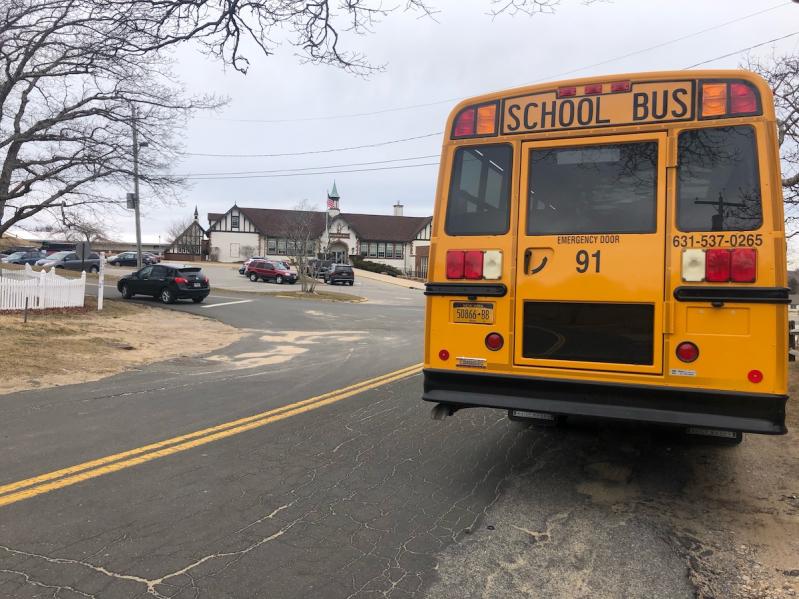The McCoy Bus Company, which has taken Montauk School students back and forth from home to school for at least 25 years, will sell most of its fleet to the district at the end of this school year.
During a board of education budget workshop on Tuesday, Jack Perna, district superintendent and school principal, confirmed that the company will stop busing children in June.
Montauk is the last local district served by McCoy. Another longtime client, the Bridgehampton School, opted for a different provider at the start of the current year, and two former districts, Wainscott and Sagaponack, have used the Sag Harbor School District as their transportation provider for some time now.
Albie McCoy, the owner of the bus company, could not be reached for comment this week. Based in Bridgehampton, he also runs a heating oil and burner repair business.
"They've been wonderful — great to work with. I will miss them," Mr. Perna said of the McCoy Bus Company. "I feel like we're losing a big part of the Montauk School."
He said Montauk will lease the McCoy depot in Montauk to park the buses. The district will post job listings for between six and 11 bus drivers, some full-time and others part-time, and "we will obviously consider all" of the company's current drivers.
According to Matthew Neuschwender, the district treasurer, Montauk will use budget surpluses of past years to buy the buses and hire the drivers, and possibly offer them health insurance and other benefits.
In its proposed $20.77 million budget for the 2021-22 fiscal year, Montauk has $265,000 set aside to buy the buses, $570,000 to pay the drivers, and $120,000 to rent the bus garage. Altogether, including equipment, hiring a bus coordinator, and transportation to and from Board of Cooperative Educational Services programs to the west, Montauk has budgeted just under $1.8 million to bring the buses in-house, up from $1.63 million currently.
"The auditors really liked this idea," Mr. Neuschwender said on Tuesday. He explained that while the district has an "unassigned fund balance" of $1.2 million (meaning money unspent), New York State finance rules dictate that no more than 4 percent of its year-to-year budget can be kept in that balance. Montauk has usually had more than that, Mr. Neuschwender said, so it periodically gets a slap on the wrist from state auditors. Spending money on busing, he said, will bring that balance closer to what is permitted, which in this case would be around $830,000.
Buying the buses will require a separate proposition on the May 18 ballot. Because Montauk will tap the unassigned fund balance for the fleet, Mr. Neuschwender said the plan will not have a detrimental effect on overall spending. If the community approves the budget, spending will actually decrease next year — from $20.87 million down to $20.77 million.
The treasurer described the budget as "very conservative." While there is still a projected 1.84-percent increase in the tax levy, it will be far less than what Montauk is allowed to do under the state's tax cap rules. "We're in a good position," Mr. Neuschwender said.
The district currently offers private school students transportation within a 50-mile radius of Montauk, a necessity when Bishop McGann-Mercy Catholic High School in Riverhead was still open. It closed in 2018, and Montauk is now considering a separate ballot proposition to lower the mileage threshold to 15 miles, the minimum required by the state. That radius would include the Ross School's upper campus and the Avenues School, both in East Hampton, but not the Ross Lower School or the Hayground School, which are in Bridgehampton.
"We could go to 15 miles this year and see how it goes," Lee White, a Montauk School Board member, suggested.
He also said it's worth looking into sharing transportation services with nearby schools, particularly for the BOCES and private school bus runs.
"That's a no-brainer," said Mr. Neuschwender.

